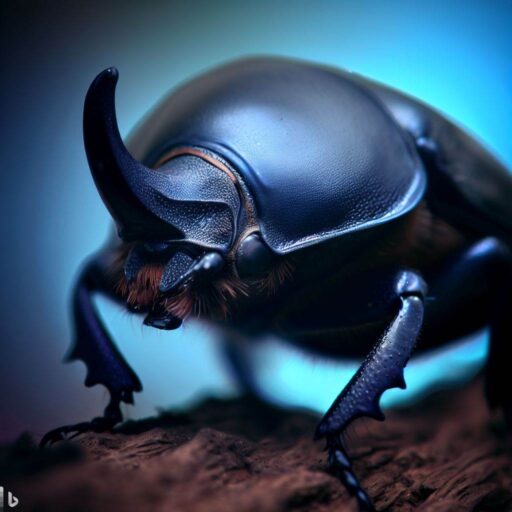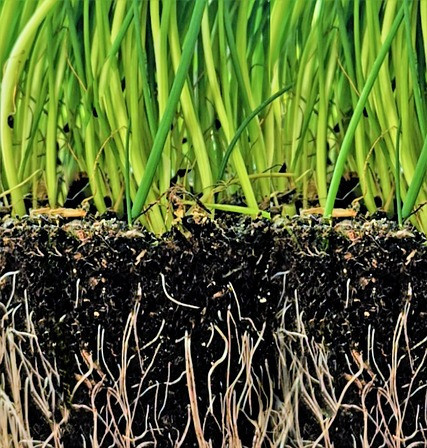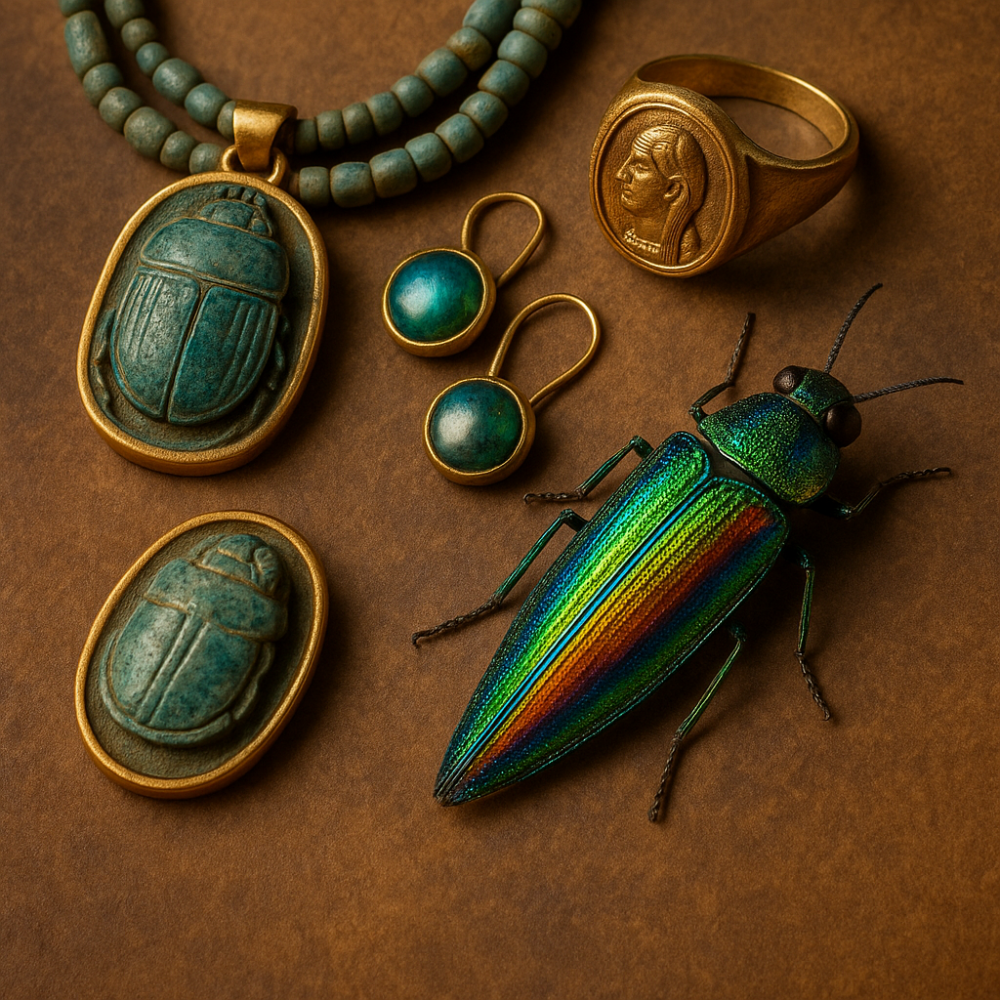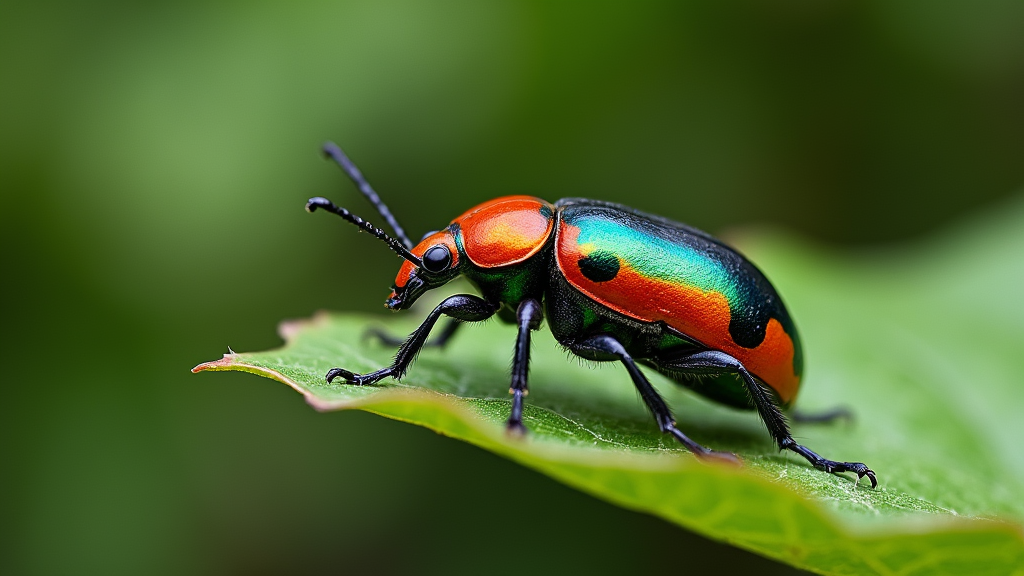.jpg)
What Do African Black Beetles Eat
- African Black Beetles primarily feed on plant roots and organic matter in the soil, making them a potential threat to plants and crops.
- Understanding the diet of African Black Beetles is crucial for identifying signs of infestation and implementing effective prevention and control measures.
- Infestations of African Black Beetles can be prevented and controlled through practices such as regular monitoring, proper soil management, and the use of biological control agents.
African Black Beetles, with their varied diet, play a crucial role in their ecosystem.
In this section, we’ll explore an overview of these fascinating creatures and dive into why understanding their diet is essential.
By delving into their feeding habits, we can gain insights into their ecological impact and develop more effective strategies for managing their populations.
Overview of African Black Beetles

African Black Beetles, commonly found in Africa, are an essential species of beetle.
They can control populations of other insects and pests – making them key to the ecosystem.
To better understand their impact, let’s examine their lifecycle and diet.
The African Black Beetle’s lifecycle has two main stages: eggs and larvae, followed by the adult stage.
In the eggs and larvae stage, they hatch from eggs laid in soil or decaying vegetation.
They feed on organic matter, like plant roots, and other insects. As adults, they focus on adult insects as their main food source.
Their diet primarily consists of insects that are harmful to plants and crops, such as grubs, caterpillars, aphids, and termites.
So, they act as natural pest control agents that protect crops from damage.
They also eat organic matter in the soil.
African Black Beetles are essential for biodiversity and preventing infestations.
However, their population levels need to be monitored to ensure they don’t become too abundant or cause damage.
Importance of understanding African Black Beetles’ diet
Comprehending the diet of African Black Beetles is essential for studying their behavior and creating effective control strategies.
They have many food sources, such as plant roots and organic matter.

Knowing their favorite food helps researchers and farmers predict infestations and take preventive action to protect plants and crops.
During their larval stage, African Black Beetles mainly eat plant roots.
This causes damage to plant health and growth. Farmers can avoid this by using proper irrigation and pest-resistant rootstock.
Knowing their feeding habits also helps detect infestations early, allowing swift actions for control.
African Black Beetles target a wide range of plant species, including vital agricultural crops.
Their feeding activity reduces crop yields, stunts growth, and kills young plants.
Hence, understanding their dietary preferences helps farmers choose suitable crop rotation strategies and pest management techniques.
Gaining knowledge about the diet of African Black Beetles also provides information about ecosystem dynamics.
They act as decomposers by consuming organic matter in the soil. This helps recycle nutrients and keeps soil fertility.
Understanding their role helps assess the ecological effects of changes in their population due to factors such as climate change.
In conclusion, understanding the diet of African Black Beetles is key for managing their impact on plants and crops.
This facilitates the development of interventions that reduce economic losses and respect the ecological context.
Knowing their dietary preferences helps us limit the damage caused by infestations and maintain a healthy balance between agricultural productivity and environmental sustainability.
Lifecycle of African Black Beetles
The lifecycle of African Black Beetles is a fascinating journey, encompassing the stages of eggs and larvae, leading up to the remarkable adult stage.
By delving into each of these sub-sections, we can uncover intriguing facts and insights about the development and behavior of these beetles.
Eggs and larvae stage
The eggs and larvae stage of African Black Beetle is a must in their lifetime.
It’s when they get a major transformation. The female beetles lay eggs in soil or decaying organic matter.
The eggs become white, C-shaped grubs with brown heads. These larvae feed on grassroots and organic matter in the soil.
But, it’s crucial as they consume large amounts of grassroots and organic matter. This can damage crops and plant growth.
Pro Tip – Monitor soil health regularly and take pest control measures to stop African Black Beetle infestations during the egg and larvae stage.
Adult stage
Adult African Black Beetles have a hard exoskeleton and measure around 1-2 cm in length.
They have dark brown or black bodies, with wings that enable them to fly.
They are voracious eaters, consuming plant materials like roots, stems, leaves, and fruits.
This can cause damage to crops and plants if left uncontrolled.
In addition, these beetles are vital in the reproduction process.
Females lay eggs in soil or decaying matter, which ensures the survival of the species.
Understanding their behavior and habits is key in managing infestations.
Signs such as damaged plants or crop yield reduction can be used to prevent further damage.
Experience the delectable world of African Black Beetles and their destructive capabilities!
What Do African Black Beetles Eat?
In the world of African Black Beetles, their diet holds a significant impact.
Discover the preferred food sources of these beetles and how they can affect plants and crops in this intriguing section.
Unveiling the secrets of their eating habits, we will explore the consequences of their feeding behavior on the agricultural landscape.
Prepare to delve into the complex relationship between African Black Beetles and their food sources.
African Black Beetles’ preferred food sources
African Black Beetles have their favorites when it comes to food.
They like plants and crops, particularly grass roots and other vegetation. T
his makes them a pest in agricultural areas, as they can hurt crops and reduce yields.
Knowing what they prefer to eat is key for managing infestations and protecting plants.
The table below shows the African Black Beetle’s favorite food sources:
| Food Sources |
|---|
| Grass roots |
| Vegetation |
| Crops |
Grass roots are their main food, causing trouble in lawns, pastures, and golf courses.
They also eat leaves and stems of vegetation.
In farms, they feed on crop roots, like maize, sorghum, and sugarcane, leading to plant health problems, slow growth, and lowered yields.
Pro Tip: To stop African Black Beetles, practice crop rotation and keep soil healthy. Monitor them regularly and use insecticides on time.
Impact of African Black Beetles on plants and crops
African Black Beetles have a big impact on plants and crops.
They feed on the roots, causing damage which stops growth and can lead to crop loss.
The larvae are especially bad as they eat the fine root hairs and feeder roots, which are important for getting nutrients.
Adults also feed on foliage, adding to the destruction.
These beetles love to feed on grasses, cereals, vegetables, fruits, and ornamental plants.
They go after both wild and cultivated crops.
The damage can vary, but it often causes economic losses and affects food security.
African Black Beetles can also spread plant diseases as they move around while eating.
This makes the damage worse.
It’s important for farmers and agricultural professionals to know about the beetles and take action to stop them.
To reduce damage, it’s important to understand the beetles’ preferences.
Prevention methods like monitoring, biological control, chemicals, and crop rotation can help.
This will reduce the impact of African Black Beetles and improve crop yield and quality.
Identifying Signs of African Black Beetle Infestation
African black beetle infestations can be identified by several signs.
Large numbers of black beetles, yellow patches or dying grass in the lawn, and small holes in the turf are all indicators.
Also, these beetles may be attracted to lights at night, leading to congregations around light sources.
To further identify an infestation, observe the affected lawn.
The beetles feed on the roots of grass, causing it to become weak and discolored with patches of yellowing or dying.
Plus, they burrow underground, leaving small holes in the turf.
Also, note that African black beetles are attracted to light sources at night.
This can lead to swarms of beetles around lights, especially during certain times of the year. If this happens, it could be an indication of an infestation nearby.
By being observant of these signs and behaviors, one can effectively identify and address an African black beetle infestation.
Preventing and Controlling African Black Beetle Infestations
- Stopping African Black Beetle infestations? It’s possible with a few simple steps! Firstly, have good hygiene in your garden or lawn. Clear away decaying plants or organic matter, which the beetles can eat.
- Secondly, keep the soil dry – they like damp environments.
- Thirdly, introduce natural predators like nematodes or parasitic wasps. These can battle against the beetles in the long-term. Plus, crop rotation and different types of plants can disrupt their lifecycle.
Additionally, monitor your garden for signs of African Black Beetles.
Wilting plants, yellowing plants, damaged roots, or holes in the soil are telltale signs.
If you spot any, act quickly to stop them from spreading.
To sum up, prevention and control of African Black Beetles is possible with good hygiene, biological control methods, and regular monitoring.
Follow these steps to protect your garden or lawn from these destructive pests.
Conclusion
To wrap up, African black beetles consume roots and shoots of plants, thus damaging crops and grass.
To control their populations and reduce their effect on crops, integrated pest management strategies such as cultural, biological, and chemical methods can be applied.
Proper irrigation techniques, natural predators, and insecticides should be utilized to manage these beetles.
Some Facts About What Do African Black Beetles Eat:
- ✅ The larvae of African Black Beetles, known as Curl Grubs, feed on grass roots, causing damage to lawns.
- ✅ African Black Beetles primarily eat grass roots, which are their main source of food.
- ✅ Black beetle larvae can cause extensive root damage, leading to the grass becoming dry and straw-like.
- ✅ African Black Beetles lay eggs in spring and early summer, and the hatched larvae immediately start feeding on grass roots.
- ✅ Treating black beetle infestations with fast-acting insecticides like Lawn Solutions Grub Guard or Lawn Solutions Battle Insecticide can eliminate the larvae that eat grass roots.
FAQ
What do African black beetles eat?
African black beetles feed on grass roots, causing extensive damage to lawns. The larvae, known as curl grubs, are particularly responsible for eating the grass roots.
How can I control African black beetles in my lawn and garden?
For effective control, products such as Yates Baythroid Advanced Insect Killer for Lawns can be used to treat African black beetles.
Other options include collecting and disposing of the curl grubs, allowing chickens or fowl to feed on the beetles, and exposing the larvae and adults to predators by turning over the soil.
What are the best treatments for curl grubs?
Acelepryn GR and Acelepryn Liquid are recommended for safe and effective control of curl grubs. Acelepryn is a preventative pesticide that can protect lawns for up to six months.
When is the best time to apply treatment for African black beetles?
Treatment for African black beetles should be applied late in the day when the adult beetles are actively feeding.
What are the key features of African black beetles?
African black beetles are glossy black, oval-shaped, and about 12-15mm long. They have light-brown bristle-like structures on the underside of their bodies, chewing mouthparts, compound eyes, short antennae, and a large trapezoid-shaped plate on the upper side of their bodies.
How can I enhance pest and disease resiliency in my lawn and garden?
To enhance pest and disease resiliency, it is recommended to keep plants well-watered and fertilized with products such as Yates Dynamic Lifter Organic Lawn Food and Yates Dynamic Lifter Soil Improver & Plant Fertilizer.
This can help plants recover from attack and become more resilient to pests and diseases.





Leave a Reply